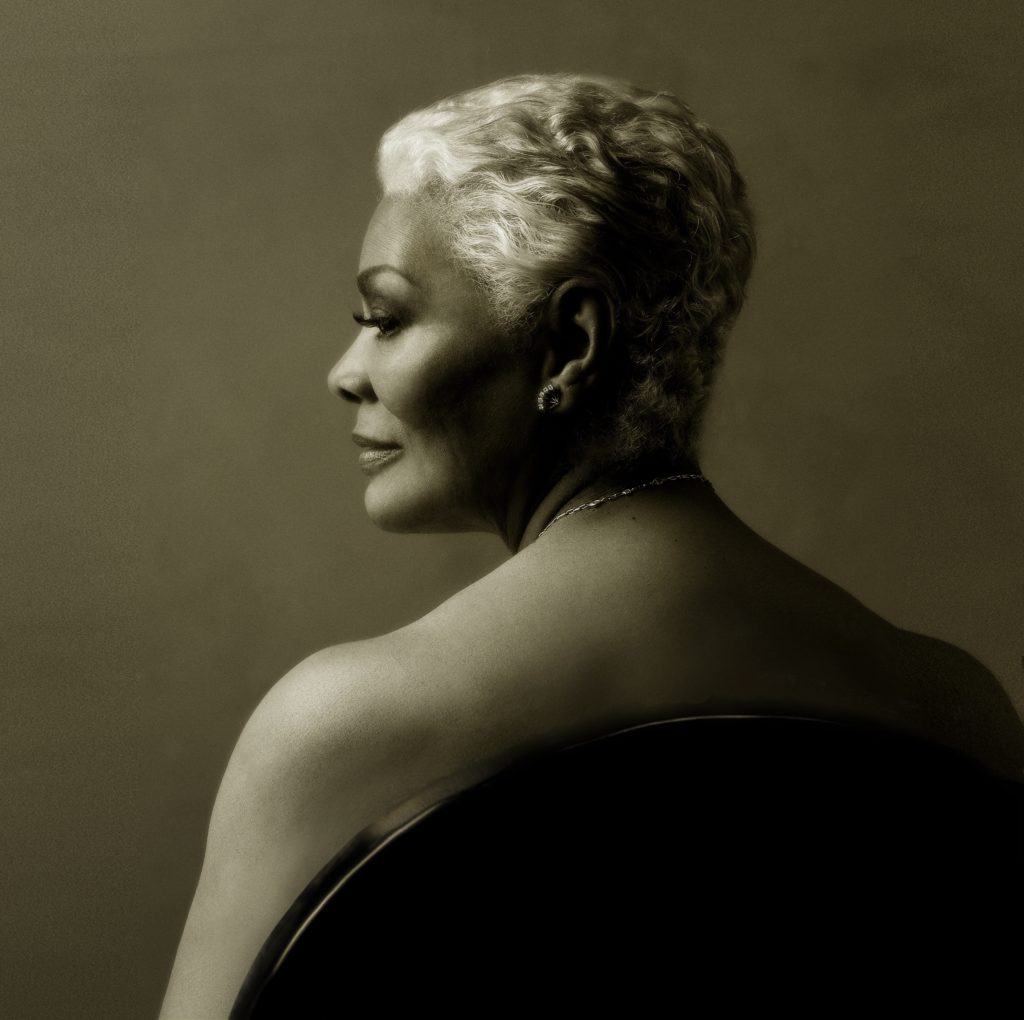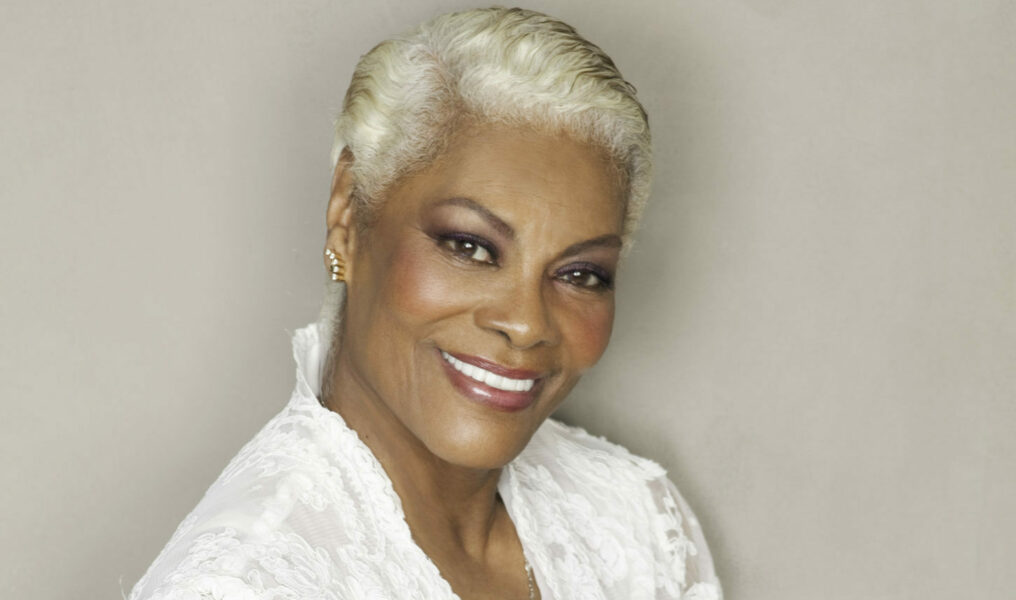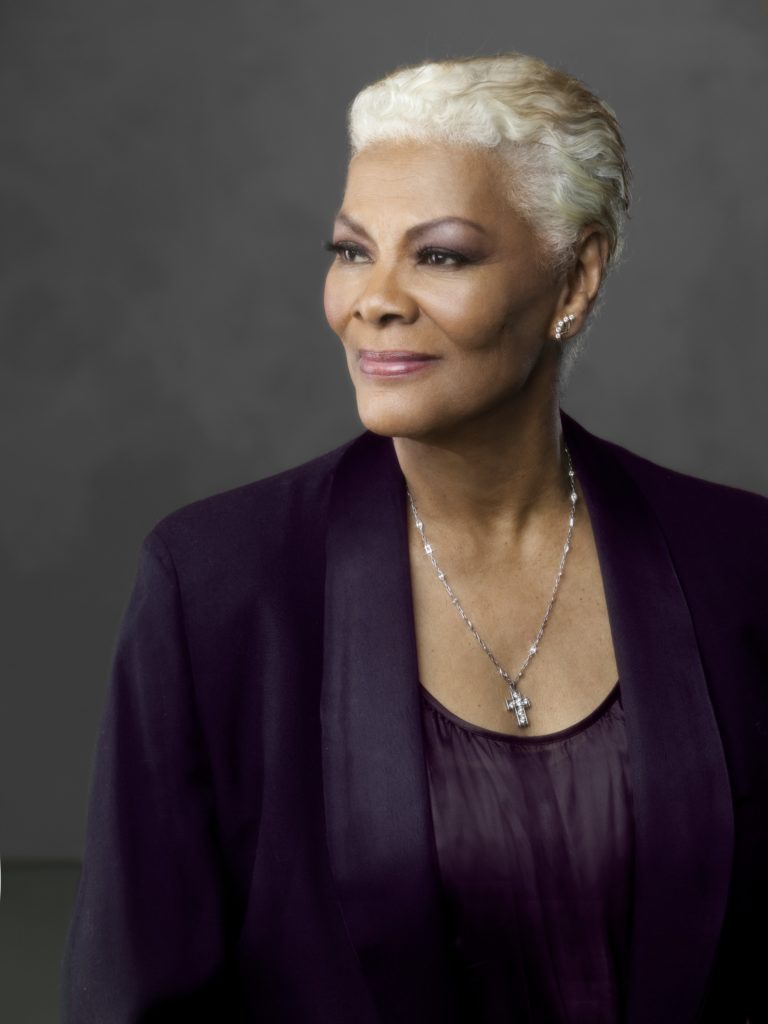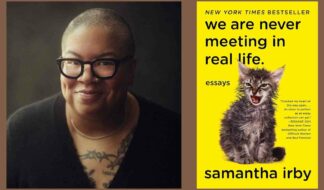Dionne Warwick has laughs like no other. The memory-laden laugh for explaining, despite popular opinion, her friendship with Aretha Franklin; another for her read on what she thinks is, quite literally, the depressing state of the music business (she won't call some new songs "songs"); the one when discussing "Twitter or twatter."
Oftentimes it's a breezy, throaty, less-coded chuckle, but the one she whoops with great dramatic effect when the topic of Auto-Tune is broached is a cackle so distinctly a cackle that it immediately answers the question about Auto-Tune before she uses a barking dog analogy to illustrate her very Dionne response. On this front, she seems to agree with Franklin, who once scoffed at the mere idea of using the pitch-fixing tool after an interviewer explained it: "Oh please… that's ridiculous. That would be ridiculous. After 50 years, please."
Like Franklin, Warwick has certainly put in the time too. The five-time Grammy winner grew up singing gospel music at New Hope Baptist Church in her native state of New Jersey, where she currently lives. She did background singing, performed in a gospel trio. But after composer Burt Bacharach took her under his wings in the early '60s, Warwick landed a recording deal and her pop-soul music went on to dominate the charts. Her songs are timeless: "I Say a Little Prayer," "Walk On By," "Do You Know the Way to San Jose" and "That's What Friends Are For," recorded with Elton John, Gladys Knight and Stevie Wonder. The song was released in 1985 as a charity single for the American Foundation for AIDS Research and raised over $3 million for the cause. In 1967, she also released "(Theme from) Valley of the Dolls" from the cult film of the same name after Judy Garland, originally set to sing the track, was fired.
On May 10, the 78-year-old music legend will release her 36th studio release and first album in five years, "She's Back." Produced by her son Damon Elliott, the album's 10 songs include duets with Kenny Lattimore ("What Color Is Love"), Musiq Soulchild ("Am I Dreaming?") and Krayzie Bone of Bone Thugs-N-Harmony ("Déj√† Vu"). Notably, the set is Warwick's first R&B/soul album since "Soulful," released 50 years ago, in 1969.
Is this where you expected to be 50 years after your last R&B album?
No, not necessarily.
What did you envision for yourself?
That I'd be doing exactly what I've always been doing: recording when the opportunity presents itself, doing my concerts around this entire world like I always do, and just enjoying my music and giving it to people to enjoy.
Why lead with a new recording of "What the World Needs Now Is Love" from the new album?
Because that's we need. And it's not that simple – I mean, this whole world is in shambles and it's because of our own country. Our own country is just – I don't know what's going on! I'm beginning to wonder what country I live in.
How does where we are now in the country compare to other eras you've lived through?
It's almost as if we're walking backward. Nobody seems to be looking ahead at what the possibilities are and the good that can be done. We're literally back in the '60s during the marches and the blatant discrimination. I mean, now it just runs rampant. It's crazy.
Sometimes I feel like I'm living in a history book.
That's what you're living in. You're living in the period of time when people who have died over the years for the freedoms that we're supposed to be enjoying, it was almost all in vain. It doesn't make sense. It just does not make sense. So I feel that this world does need love. It really does. A whole bunch of it. And I personally know that love is God, so that's what we need.
You stood up for the LGBTQ community when we needed you most, in a time when many influential names did not take that step. You lost many people who were close to you to AIDS, including your valet. How do you reflect on that time, and how personally affected were you?
I was not the only one personally affected. I think everybody that ever heard that word "HIV/AIDS" was affected, not necessarily directly but indirectly. Losing people for any reason is not an easy thing to be a part of, but when you lose people to something (where something) can be done about it then it becomes another kind of situation. I've always believed what my grandfather told me at a very, very tender age: that we were all put here to be of service to each other. We all have got to get our heads out of the sand and take a good look around us and say, "Enough."
Because of you, Ronald Reagan said "AIDS" for the first time, you've said. Why did you decide to challenge Ronald Reagan?
Basically he appointed me the United States Ambassador of Health and my mandate, self-imposed basically, was the AIDS issue because that was what was prevalent at that time. And he just did not want to say that word for some reason. I hadn't a clue as to why. But when I did a press conference and he was there, I prodded him into saying the word. I think it was time for him to fess up and know that the community that was suffering from this disease should be addressed by someone who meant something to all people and being the President of the United States he had an obligation to do so.
You've had a special relationship with the LGBTQ community for decades. Is that closeness to the gay community something that came out of that tragic period or did it start before?
Apparently it had started before, when I was singing gospel music as a teenager. The young man who played piano for our group was gay, but that was his lifestyle, that's what he chose as a lifestyle. Who am I to judge him? He didn't judge me. So, you know, everybody does what is satisfying to them to do, and I let you live your life and you allow me to live mine.
You come from a family who seems divided on accepting the LGBTQ community: the Houston family has not been the most outspoken allies of the community and have, in fact, expressed some homophobia over the years.
Well, yeah. That's their way of dealing with it. I can't speak for that, everybody approaches any kind of a situation in different manners, so I can only speak for myself.
What was your relationship like with your gay church friend? You were close, I imagine.
Oh yeah. He was wonderful to be around, and could play a piano like nobody else. He was a human being, OK – that's the way I look at people. I can't judge you for your preference – that's your choice, not mine. You gotta be who you are and I've gotta be who I am and that's just the way it's supposed to be.
You say "preference" and "lifestyle," and I know some people still use both of those words. But a lot of gay people think they were born this way, that it wasn't a chosen lifestyle or a preference. Do you think a gay person could be born gay?
Absolutely. It's not only the way you're born, it's the lifestyle you've chosen to live and that's your choice. I can't define what it means or how it happens or why it happens or when it happens. It just is. I look at it that way.
What has the LGBTQ community's loyalty all these years meant to you?
It's absolutely wonderful to know that people generally still appreciate what I do, and your love and care for me means an awful lot to me and I certainly appreciate it.
Famously, in addition to being her cousin, you were Whitney's mentor. Whitney was supportive of the community as well. Do you think her LGBTQ support was influenced by your own? Did you ever talk about that fanbase that you shared?
No, we never talked about anything like that. She made her choice as I make mine. I'm involved with an awful lot of things that do not seem to be popular, but it's something that should be addressed, and if I feel I have something to offer, I have no problem doing it. I'm certain that she, eventually in her growing years, felt the same way: If she had something to offer, she felt like, "OK, I'm gonna do it."
How do you think Whitney's legacy has been handled in the years since her death?
Oh, I don't know. That's not for me to discuss or to make an opinion on. And I'm gonna stop you at this point in time because I do not discuss Whitney. She is gone and she will be well remembered as the beautiful person she was.
Absolutely. I can respect that. Let's shift to the music business and talk about the way that things have changed over the last 50 years, because this is not the same music business you were brought into.
Not at all! (Laughs)
Today's music industry is often criticized for not producing as many genuine vocal talents as in past eras.
Mmhmm! (Laughs)
What is your take?
What is happening in the industry today is so alien to me. (Laughs) It really is! I'm not a computer geek, so I'm not here all day long sitting at a computer screen. My cell phone, I try to leave it anywhere I can.
But you have one.
Yes, I do. And it's only because of my grandbabies! They want to talk to grammy and I'm available anytime they wanna talk. But we've lost all of our social skills, nobody talks to anybody anymore. Everybody's so busy texting – is that what it's called? Yeah, texting. And you know, I've witnessed kids sitting across from each other and instead of speaking cordially saying whatever they need to say they're busy getting carpal tunnel on their phones. I think it's a sad, sad scenario right now. I think we all have to really get back to – I remember writing notes to somebody to say "thank you."
Now it's difficult to break out as a successful artist unless you can manage your Twitter and your Facebook.
Guess what? I don't manage anything. I don't even know what Twitter or twatter is! And I really don't want to. That's why I have social media people who do all that stuff! And I told them from the very beginning: "I know nothing about it, I don't want to know anything about it; that's why you're hired, that's why I pay you very well. So you do what you gotta do and let people know what they have to know."
What do you think of Auto-Tune?
Of what?
Of Auto-Tune.
(Boisterous, dramatic, iconic cackle) I just learned what that was!
When, how?
Honest to god, I really did. My son told me what that was and I couldn't believe it. He said, "Yeah, you know, you can take a puppy in there and he can bark and I can make him sound good." I said, "What?!" So, where is the real talent?
Is it missing? Do you think we have less talent being produced than we did in the '60s and '70s?
Absolutely, no doubt. I had a discussion with some wonderful people not too long ago, and they asked my opinion on the songs or whatever you wanna call them because I do not call them songs – the recordings of today. How many people will remember any of those words 20 years from now? Music is supposed to keep you reminded of wonderful times, of peaceful times, of happy times, of sad times, of joy. You know, what happened to that? What happened? Doesn't anybody wanna be happy anymore?

Looking back at your status as one of the first true black crossover artists, do you feel like a pioneer or trailblazer?
No, because I've always considered – first of all, nobody can ever decide to put me in a box. I just feel music belongs to everyone and music is just that – music. It doesn't have a title or a genre, it's just music. It's the same eight notes in a major scale, the same 13 notes in a chromatic scale. So music is music.
But you don't recognize that you blazed a trail for other black female artists?
No, I think people's eyes and ears opened. That's basically all that happened. They call me the one that bridged the gap – what kind of gap was it? (Laughs)
After singing in church, you've said you never thought you'd be doing what you're doing music-wise. Have you had the music career you always wanted? Did you want more out of it? Expect more out of it?
I never really wanted to do this; it's just not what I went to college for. I was gonna teach. So, you know, that's that answer. (Laughs)
I feel your accomplishments aren't as celebrated currently in the same way as yours peers.
Right.
Where are all the Dionne Warwick award-show tributes? When it comes to your career and those of your peers, like Gladys and Aretha and Patti LaBelle and Diana Ross, do you feel left out?
No, not at all. No. Every concert I did, and I'm truly blessed to say, all sold out. So those people who want to hear and see Dionne Warwick are the ones who show up and put their butts in the seats. I'm not concerned about the accolades they're giving to others – apparently they deserve it, and I applaud them. It doesn't matter to me. Most people like you feel I've been overlooked but I don't feel that way. It's like everything else: I feel that what is supposed to happen for and with Dionne does.
Given your relationship with Aretha, how did you process her death?
It was a hard loss. It was a very difficult loss. Aretha was a friend regardless of what most people might think. (Laughs) It's so funny how people like to put some craziness into anybody's life when, in fact, they don't know anybody's life for real.
Aretha and I grew up together; we were teenagers when we met. And she's always been one of the most incredible talents I've ever heard, since the first day I heard her sing. Never grew old. So, you know, it's difficult to lose anyone that you know and that you're close to.
Your relationship with Aretha has been depicted as fairly tense in the media, and in 2017 Aretha sent a lengthy fax to the Associated Press addressing what she noted was a "libelous" statement made by you about her at Whitney's funeral.
Aretha was a person who was reactive. She wasn't one (laughs)… she just… well, she thought the way she did, period, that was the end of that. And the next day, she probably was like, "Why did I do that?" (Laughs)
You laugh because you seem to understand her.
Well, I knew her. That's the difference. When you know someone and when you think you know someone, those are two different things. I knew Aretha.
You're one of a few left in your peer group, next to Patti, Diana and Gladys, after Aretha passed last year. What do you want your legacy to be?
My music, of course. And that I've been true to who I am and who I was.
Where do you keep your five Grammys?
(Laughs) Well, they were in my mom's house until she passed. Now a couple are in my cousin's house. I have only one in my house and I'm gonna keep the one that I'm gonna get soon, and that's the Lifetime Achievement. I'm gonna keep that one.
Why haven't you kept them all?
There's just so much space on the wall and so much space on the shelf.
What does being honored with the Lifetime Achievement Award from the Recording Academy mean to you?
It means an awful lot – that the entire academy has decided, finally, that I'm deserving. So like I said, when it's supposed to happen, that's when it happens.
You once went to a psychic who told you you'd win the first two Grammys you ever won. Have you been back to a psychic since?
No, I haven't. I haven't found one that's good! (Laughs) No, I've been too busy trying to put some beautiful sounds into your ears.












